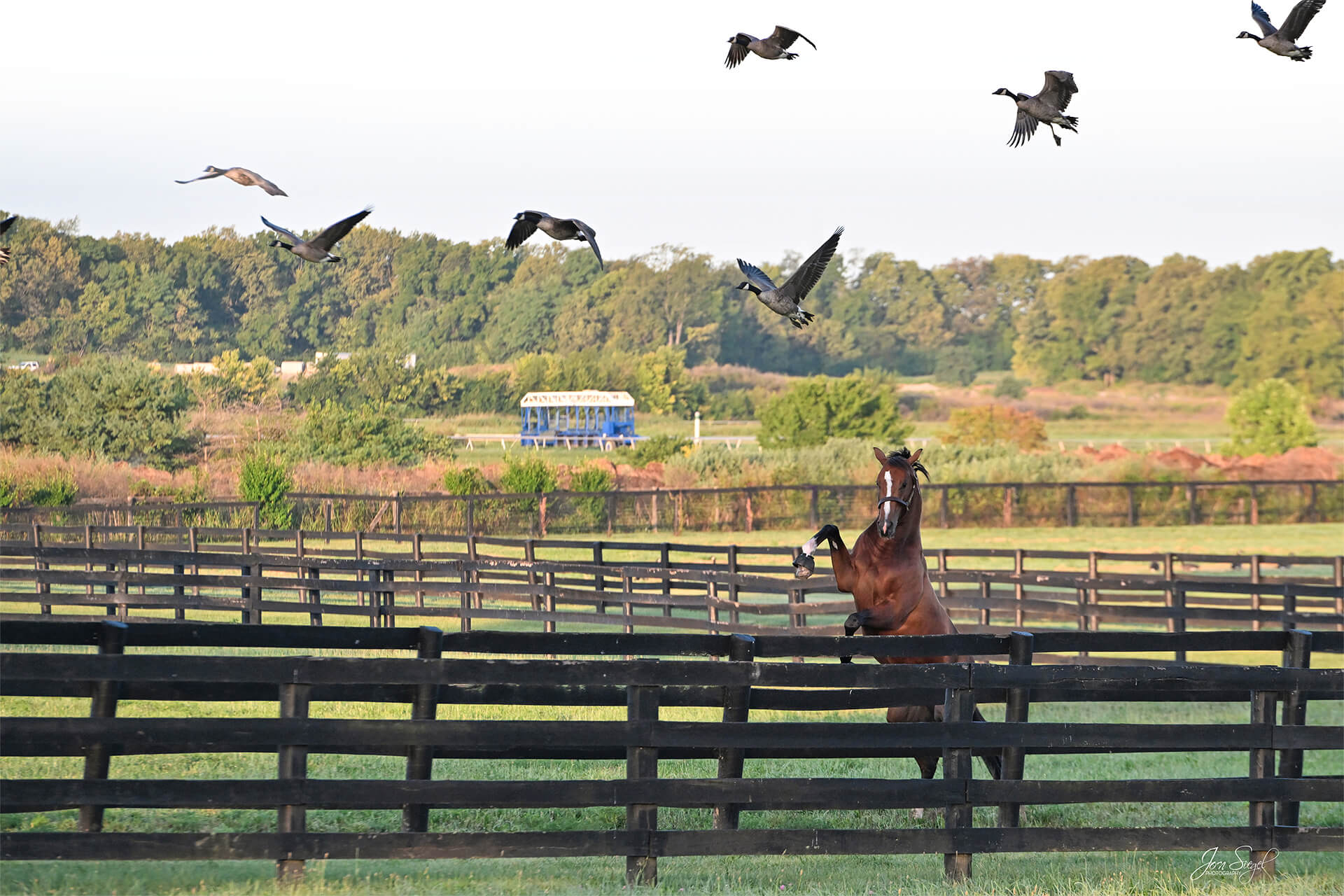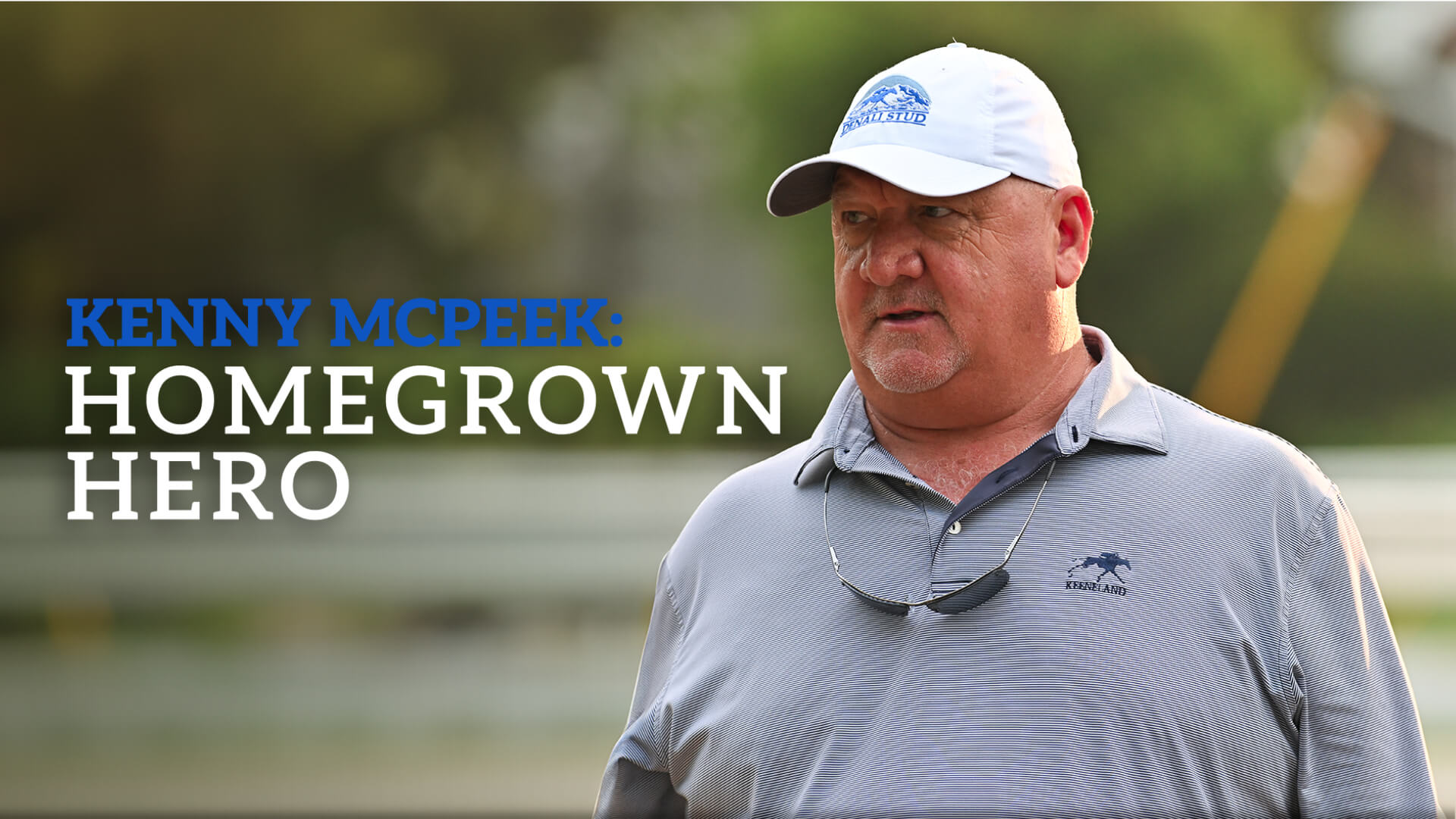To be successful as a trainer of Thoroughbred racehorses much is expected. Even more important than handling the exhilarating highs and inevitable lows, the demanding job requires dedication, persistence, and commitment. Kenny McPeek, with nearly four decades of experience, has demonstrated a remarkable ability to train horses to reach their full potential, earning him a reputation as one of the top trainers in the industry.
McPeek's body of work will endure for generations. He has trained numerous Grade 1 horses, has racked up an impressive total of 2,041 victories, and earlier this year, McPeek swept the Kentucky Oaks (G1) and the Kentucky Derby (G1) with Kentucky-breds Thorpedo Anna and Mystik Dan, respectively
Few races inspire as much excitement each year as the Oaks and Derby. In sweeping the Oaks and Derby in the same weekend, McPeek accomplished a rare feat that was last achieved in 1952. That year, Ben Jones won the Oaks with Real Delight and the Derby with Hill Gail—both Kentucky-breds.

“Winning the Kentucky Oaks and the Kentucky Derby was a bit surreal...It's the culmination of a lot of hard work and good luck, too. It's been magical.”
- Kenny McPeek
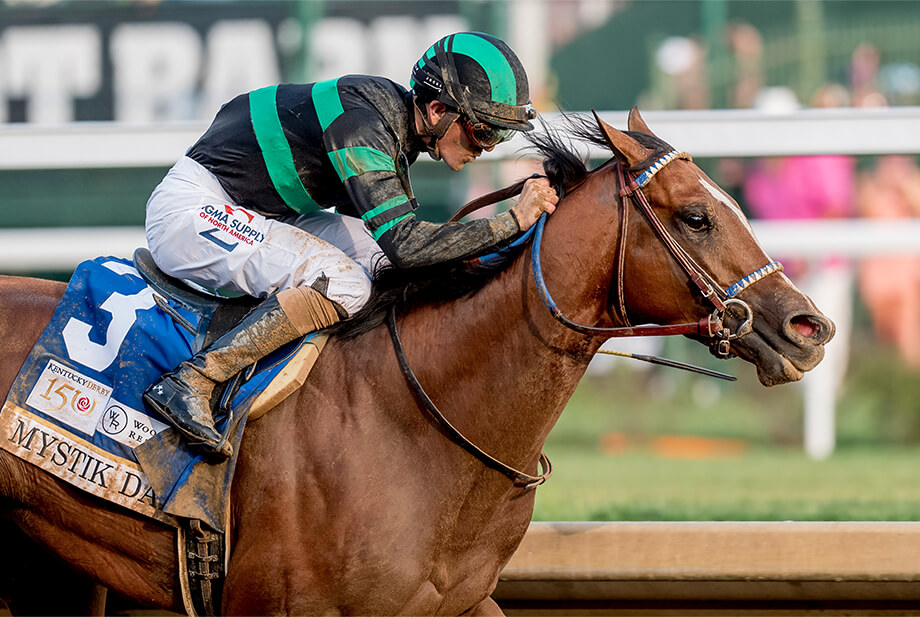
“Winning the Kentucky Oaks and the Kentucky Derby was a bit surreal,” McPeek said from his barn at Saratoga earlier this month. “You work hard at something for a long time, and I know over the course of my career, I was around the bullseye on these races. I'd run well in them. I'd had, I guess, a small taste of it. But to win both races on the same weekend was surreal. It still excites me to think about it. It's the culmination of a lot of hard work and good luck, too. It's been magical.”
Thorpedo Anna has captured the hearts of racing fans everywhere this year. Following her Kentucky Oaks victory, she rattled off dominating wins in the Acorn Stakes (G1) and the Coaching Club American Oaks (G1). She then faced the boys in the prestigious Travers Stakes (G1) Aug. 24, losing by just a head to Fierceness in a valiant effort. Thorpedo Anna became just the fifth filly to compete in the Travers since 1960, joining Cicada (last in 1962), Chris Evert (third in 1974), Davona Dale (fourth in 1979), and Wonder Gadot (last in 2018).
“I'm just proud of the team and everything. We've had a lot of fun with her, and she's been great,” said McPeek following the Travers. “Everything really went to plan other than one horse in her way. She's so special, and we're just really proud of her.”
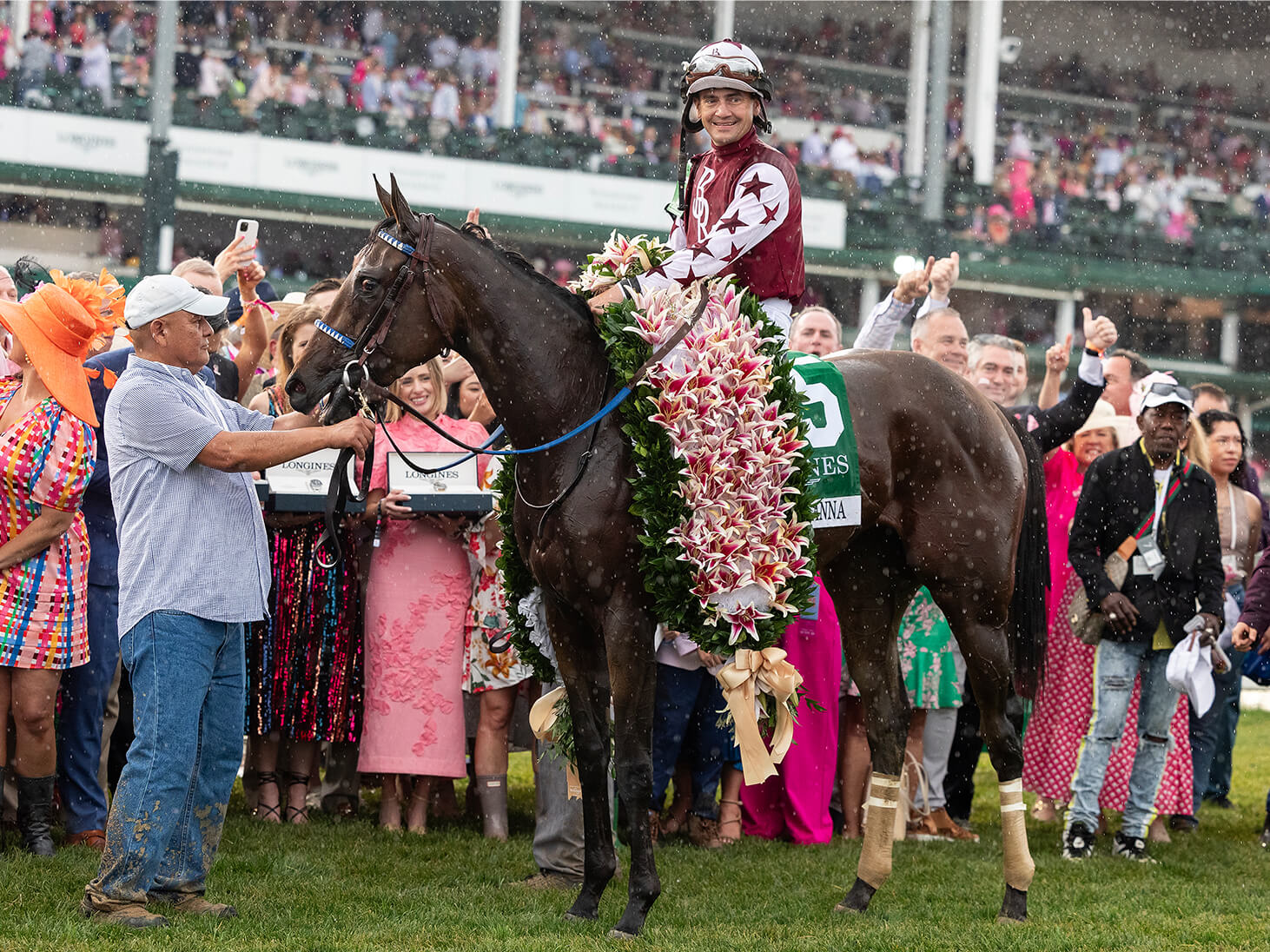
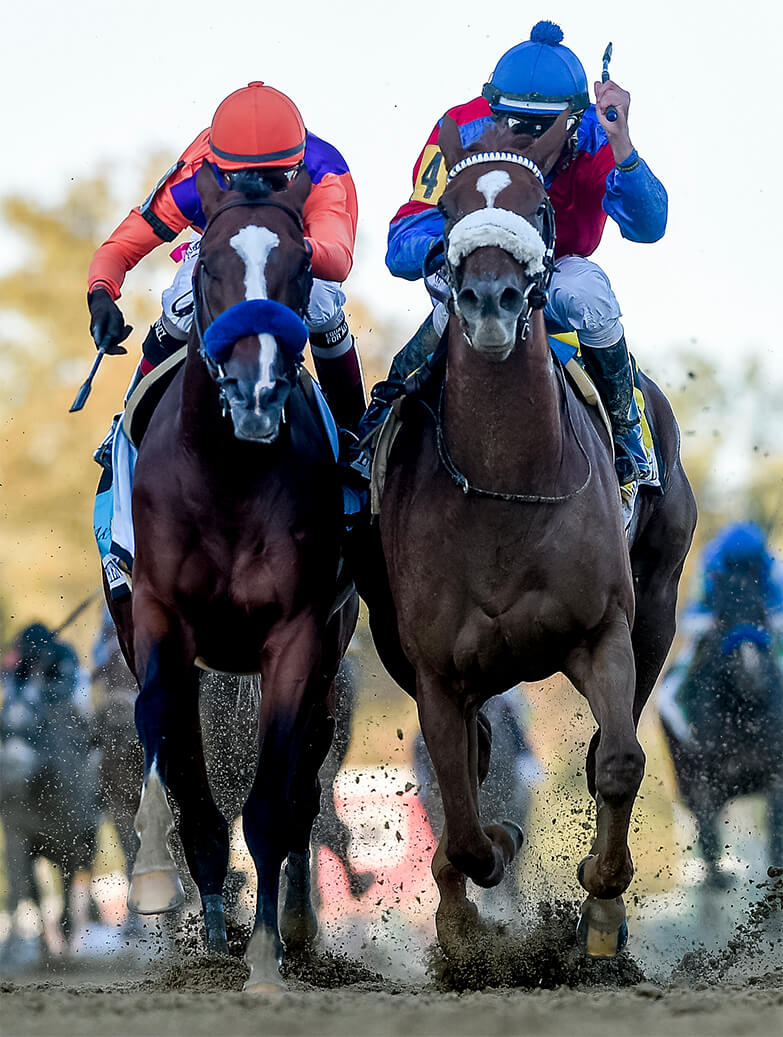
McPeek notched his first Classic victory in 2002. That's when Kentucky-bred Sarava sprang a massive 70-1 upset in that year's Belmont Stakes (G1), defeating a contentious field that included Kentucky Derby (G1) and Preakness Stakes (G1) winner War Emblem.
Fast forward to 2020 to an unconventional racing season due to the onset of the COVID-19 Pandemic, and McPeek—despite scheduling uncertainties due to the virus—enjoyed a particularly fruitful year due in large part to the sensational Kentucky-bred filly Swiss Skydiver. Peter Callahan's Swiss Skydiver gave McPeek his second Classic victory, defeating the boys in that year's Preakness Stakes (G1) en route to championship honors at season's end as the Champion Three-Year-Old Filly.
Among some of McPeek's other top earners are Grade 1 winners Mystik Dan ($4,161,360), winner of this year's Kentucky Derby; Take Charge Lady ($2,480,377); Harlan's Holiday ($1,516,564); Golden Ticket ($1,362,924); and Daddy's Lil Darling ($1,335,305) to name just a few.
Although born in Fort Chaffee, Arkansas, McPeek's formative years in Lexington, Kentucky, were instrumental in shaping his passion for horse racing and laying the foundation for his successful career.
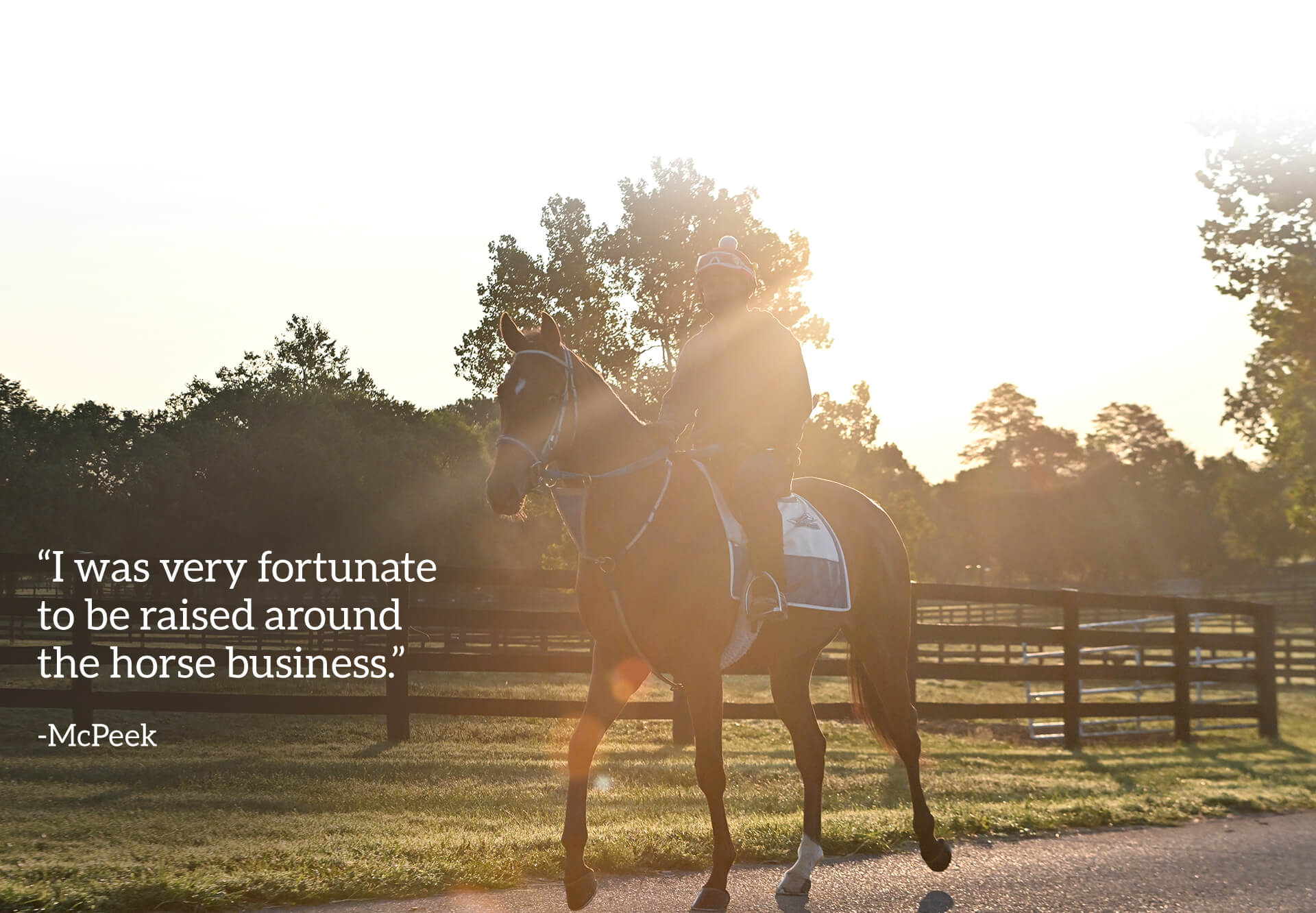
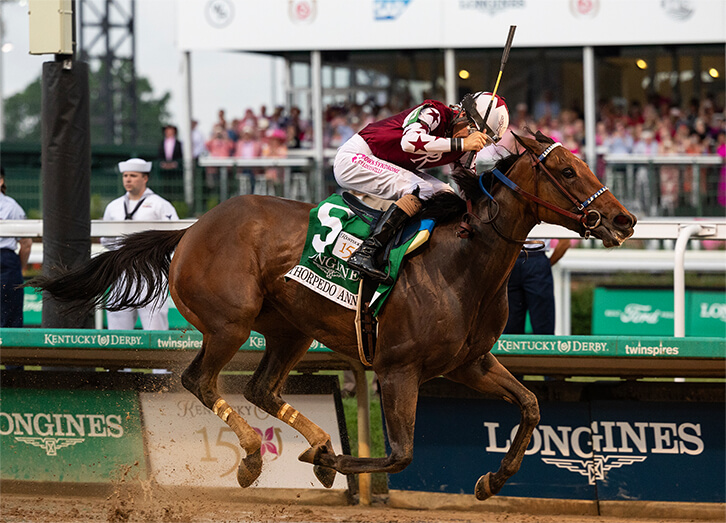
“I was very fortunate to be raised around the horse business,” McPeek shared. “When I was a kid, my grandparents would argue over which one I went to church with. I had one grandmother who lived on Versailles Road, directly in town from Keeneland, and she would bring ponies to the house after church, and we would ride.
“Then I had another grandparent—my mother's dad—who would take me to the races at Keeneland when I was single-digits, so it was a great environment to grow up in and be around the horses. Of course, I gravitated to them as I got older, and here we are today.”
For McPeek, his first business deal in the horse business came about unexpectedly when he was in his second year of college at the University of Kentucky.
“It was a bit of an accident,” McPeek related. “I can't say that I ever dreamt of training horses when I was a kid. I would read the BloodHorse regularly. I spent a lot of time going to the sales and watching horses. I liked to study pedigree. I did my first horse deal when I was a sophomore in college. I had run across a group of broodmares that were for sale in Washington state, of all things. Between my father and another guy and I, we put a little package together, flew out there, did the horse deal, and came back. [We] flipped them for double what we paid. So, I was kind of already tinkering with the horse business while I was still in college.
“What started as two weeks turned into two months, which turned into two years, which turned into other people sending me horses, which has turned into today.”
-McPeek
“I graduated from UK, I got a degree—was a classic C+, B- student,” he added. “Got my last class finished, graduated, and the next morning went to work on the racetrack. Initially, I was only hot-walking and grooming a little bit—it was 1984-85—so there weren’t a lot of options in the job market, interest rates were crazy, and my dad had a couple of horses he was partnered out on. He asked me to come help take care of them. What started as two weeks, turned into two months, which turned into two years, which turned into other people sending me horses, which has turned into today.”
In addition to training at the racetrack, McPeek also owns Magdalena Farm in Lexington. The 115-acre facility was acquired by McPeek in 2006 and was renamed Magdalena in honor of 19th-century matriarch Magdalena Weber Shely. The historic farm traces back to the Revolutionary War and has been home to many famous Thoroughbreds, including Tomy Lee, winner of the 1959 Kentucky Derby (G1) and three-time Horse of the Year Devil Diver. The full-service facility boasts 23 fields and paddocks, five barns, a Eurocizer, and a 1 ½-mile turf gallop, and services include breaking, racing, lay-ups, rehabilitation, sales preparation, breeding, and foaling.
"You have the land, and the energy of the industry, and everybody gets a lot done when it comes to taking care of Thoroughbreds here."
-McPeek
“Magdalena is prime Central Kentucky land,” McPeek said. “One of the most historic farms in Lexington, and some people don't know, but the first stallion, the first English-bred stallion that we could find, stood at Magdalena. Of course, it wasn't called Magdalena then—it was the Shely Family Farm—but Kentucky, itself, you can't hardly beat it. You have the core of stallions in Lexington, of course. You have the land, and the energy of the industry, and everybody gets a lot done when it comes to taking care of Thoroughbreds here.”
McPeek has long been recognized as a trainer with an eye for selecting and acquiring immensely talented horses for moderate prices. Case in point: Curlin. Bought as a yearling by McPeek for just $57,000 from the Eaton Sales consignment at the 2005 Keeneland September Sale, Curlin went on to earn Horse of the Year honors twice and the Hall of Famer is now making an impression on the breed as a leading stallion.
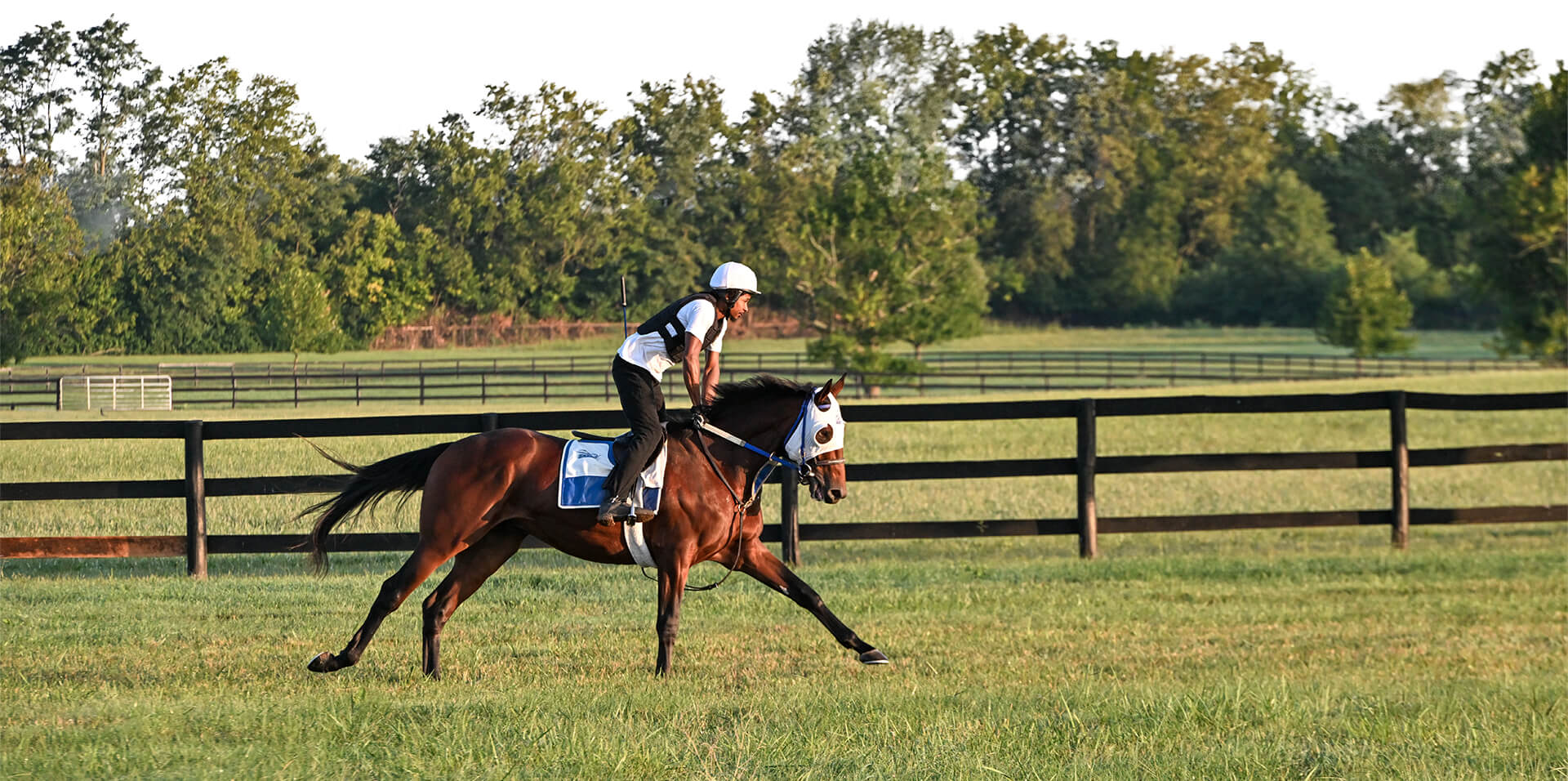
Sold privately by McPeek early in his racing career, Curlin, an immensely talented son of Smart Strike, banked a whopping $10,501,000 in purse money during his stellar racing career, while winning the industry's biggest races around the globe, including the 2008 Dubai World Cup (G1) and the 2007 Breeders' Cup Classic (G1) for owner Stonestreet Stables and trainer Steve Asmussen.
Swiss Skydiver provides further evidence of McPeek's keen eye. Another astute purchase by McPeek, Swiss Skydiver was bought for just $35,000 at the Keeneland September Sale. All told, she amassed earnings of $2,216,480.
Even after nearly four decades of success, McPeek continues to rack up wins and purse money. All told, horses trained by McPeek boast lifetime earnings of $126,753,074. Through late August of this year, McPeek has amassed purse earnings of $11,057,620 in 2024, winning 56 of 380 starts.
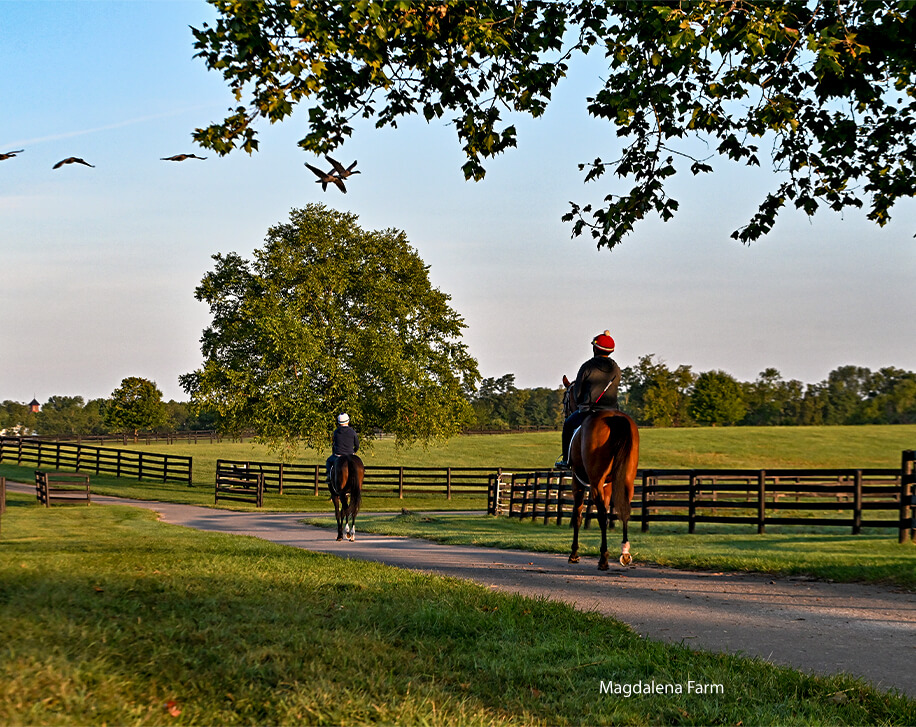
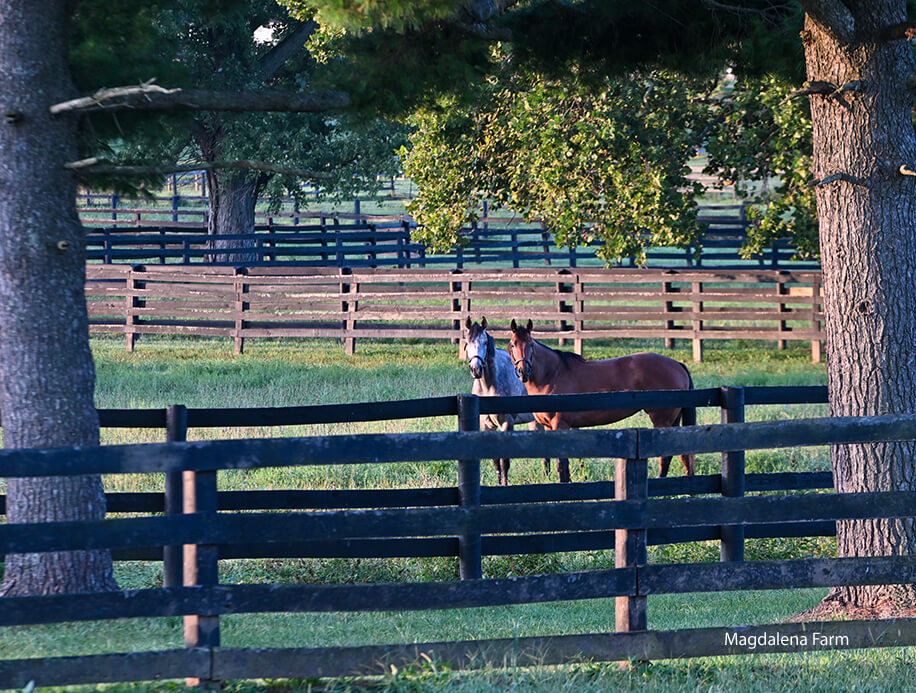
As purse money continues to skyrocket in Kentucky, McPeek's success is perhaps just a prelude to what lies ahead. With opportunities aplenty on Kentucky's year-round racing circuit, owners and trainers in the Bluegrass have a host of options when it comes to placing horses of all class levels in suitable races. McPeek is enthusiastically supportive of Kentucky's enhanced incentive award program.
“I don't know how many Kentucky-breds I've trained, but probably the majority, probably 95 percent [of the horses] that I have handled,” McPeek said. “The KTDF (Kentucky Thoroughbred Development Fund) money when I started was minimal. “Today, the impact that it has on purses and the ability of the owner of a horse to make the business of racing horses work, KTDF funds have been all the difference.
“In the past, especially early in my career, the places to win were Keeneland and Churchill Downs,” McPeek added. “Today, you could make a case for racing at Ellis year-round, Turfway Park; the things they have done at Kentucky Downs have been amazing. The choice—whether it's turf, dirt, or synthetic—in the state of Kentucky, we've got it all. It's a complete circuit with all five of those tracks continually offering a great spot to race Kentucky-breds. More of the good horses are staying local. The winter racing is a little more difficult, but overall, it's an entire circuit that you can compete in [from] start to finish all year long.”
